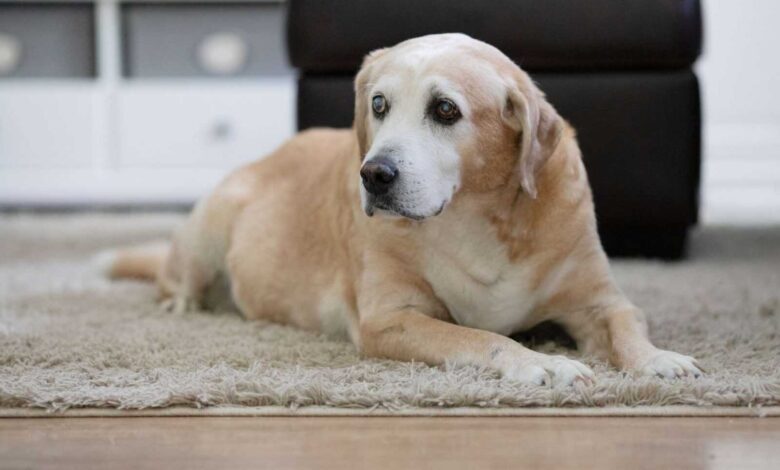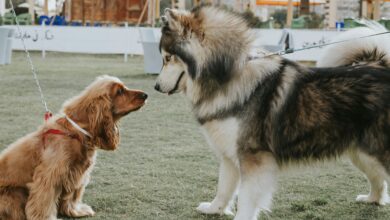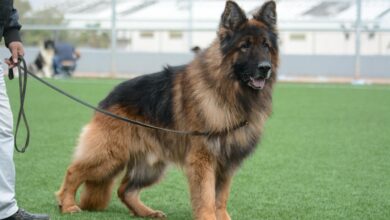
As our beloved pets age, it’s natural for their physical and cognitive abilities to change. Just like humans, older pets can experience a decline in mental sharpness. However, with the right approach, we can help keep their minds active and engaged. In this guide, we’ll explore the importance of mental training for older pets and provide practical tips and strategies to enhance their cognitive function.
The Significance of Mental Stimulation for Older Pets
Older pets, whether dogs, cats, or other species, often face cognitive challenges as they age. These challenges can manifest as forgetfulness, confusion, or even a decline in problem-solving abilities. Engaging in mental stimulation activities can offer numerous benefits:
- Combat Cognitive Decline: Mental exercises can help slow down the progression of cognitive decline in senior pets. This means keeping their minds sharp and alert for longer.
- Reduce Boredom and Anxiety: Olders, especially those with physical limitations, can experience boredom and anxiety. Mental stimulation activities provide mental engagement, reducing these negative emotions.
- Enhance Bonding: Training and mental games offer valuable bonding opportunities for senior pets and their human companions. These activities strengthen the human-pet relationship.
- Promote Physical Activity: Many mental stimulation activities require physical effort. Engaging in these exercises can help maintain your senior pet’s overall fitness and mobility.
Training Tips for Older Pets
1. Tailored Training
It’s crucial to recognize that senior pets may have physical limitations or health conditions. Tailor your training sessions to accommodate their abilities and focus on exercises that are low-impact and gentle on their joints.
2. Short and Sweet Sessions
Senior pets may tire more quickly than younger ones. To keep training enjoyable and effective, opt for multiple short sessions throughout the day rather than one extended session. Always end each session on a positive note.
3. Positive Reinforcement
Utilize positive reinforcement techniques such as treats, praise, and gentle strokes to reward your senior pet for correct behaviors. These rewards serve as powerful motivators and ensure that training remains a positive experience.
4. Adapt to Their Pace
Patience is paramount when training senior pets. Understand that they may require more time to process and respond to commands. Avoid rushing or putting undue pressure on them.
5. Consistency Matters
Consistency in your training approach is essential. Use the same commands and cues consistently to prevent confusion. Regularly reinforce previously learned behaviors to help your senior pet maintain their skills.
6. Basic Training
Training for senior pets can involve revisiting basic commands like sit, stay, come, and down. These commands provide mental stimulation and reinforce obedience, which is beneficial for both their mental and emotional well-being.
7. New Tricks and Tasks
Introduce your senior pet to new tricks or tasks that are within their physical capabilities. For dogs, this might include teaching them to use a ramp or stairs, wear a harness, or perform basic grooming tasks.
8. Mental Games and Puzzles
Mental games and puzzles are excellent tools for stimulating your senior pet’s mind. Puzzle feeders for dogs or interactive toys for cats can provide hours of entertainment while engaging their cognitive abilities.
9. Physical Activity
Engage your senior pet in low-impact physical activities like nose work games, agility courses (adapted for their abilities), and therapy exercises. These activities offer both mental and physical benefits.
10. Therapy and Service Work
Consider training your senior pet for therapy or service work if they have the right temperament and abilities. Engaging in these roles can provide your aging companion with a sense of purpose and fulfillment.
11. Regular Veterinary Checkups
Regular veterinary checkups are essential for senior pets. Discuss their cognitive health with your veterinarian, and explore potential medications or supplements that may support cognitive function.
Training for senior pets is not only an investment in their cognitive health but also an opportunity to strengthen your bond. Every small achievement in their training journey is a victory, and your senior pet will undoubtedly appreciate the effort you put into their mental well-being. So, embrace the journey of training for senior pets and make their golden years as mentally stimulating and enjoyable as possible.








